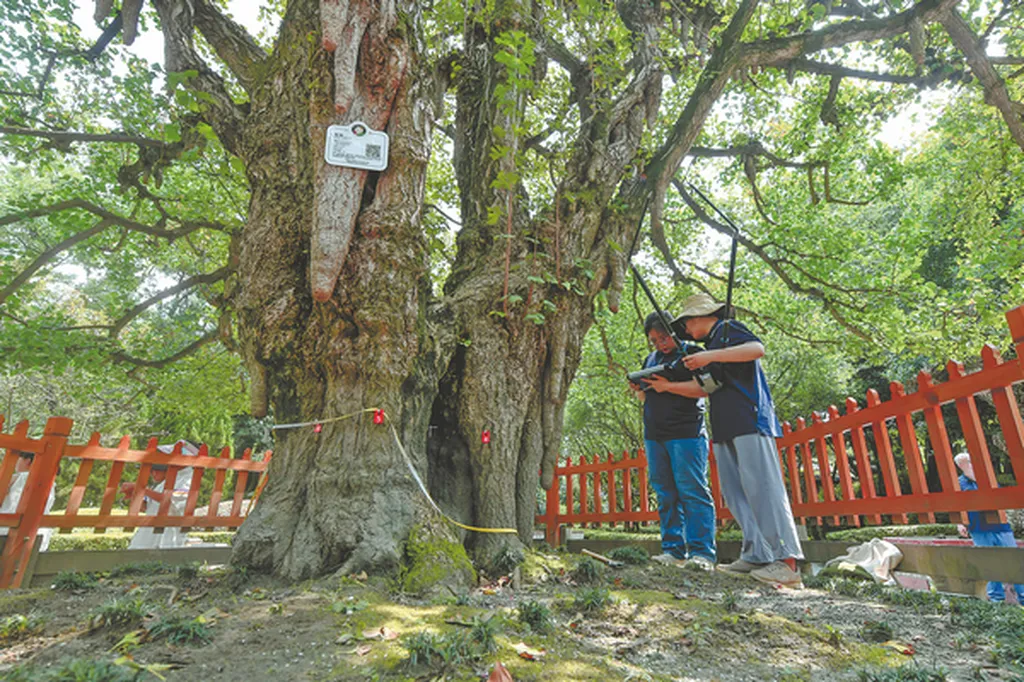In the heart of China’s agricultural innovation, a groundbreaking development is set to revolutionize the way farmers monitor and manage Ginkgo biloba plantations. Researchers have unveiled PLFYNet, a cutting-edge, lightweight deep learning model designed for real-time disease detection on resource-constrained embedded devices. This advancement promises to address significant challenges in precision agriculture, particularly in complex plantation environments.
The study, published in *Frontiers in Plant Science*, was led by Jun Wang from the College of Information Science and Technology & Artificial Intelligence at Nanjing Forestry University. The research team constructed a comprehensive multi-class dataset containing 7,158 augmented images covering three disease categories: chlorosis, insect pest, and physical damage. By evaluating five lightweight architectures and integrating attention mechanisms, an improved detection head, and efficient convolution techniques, they developed the base model LCNet-FusionYOLO. Subsequently, they applied Layer-Adaptive Magnitude-based Pruning (LAMP) to reduce model scale while enhancing performance, resulting in the final PLFYNet model.
PLFYNet achieves an impressive 94.5% mean Average Precision (mAP) at 0.5 Intersection over Union (IoU) with only 3.0 million parameters, surpassing the baseline YOLOv7-tiny by 4.8% while using merely half the parameters. Deployment on the Jetson Orin Nano embedded platform demonstrates real-time inference at 50.5 frames per second (FPS), validating its practical applicability in field scenarios.
“This work establishes a paradigm for developing high-precision, computationally efficient disease detection systems,” said Jun Wang, lead author of the study. “By balancing accuracy and resource efficiency, PLFYNet provides a practical edge-based monitoring solution for sustainable Ginkgo biloba cultivation, addressing the key deployment challenges of existing detection systems in complex agricultural environments.”
The commercial impacts of this research are substantial. Ginkgo biloba, known for its medicinal properties and economic value, requires precise and timely disease monitoring to ensure optimal yield and quality. Traditional detection methods are often labor-intensive and prone to human error. PLFYNet’s ability to perform real-time, accurate disease detection on edge devices offers a scalable and cost-effective solution for farmers and agricultural enterprises.
As the agriculture sector increasingly embraces digital transformation, innovations like PLFYNet are poised to shape the future of precision agriculture. By enabling real-time, on-site disease detection, farmers can make informed decisions promptly, reducing crop loss and improving overall productivity. This technology not only enhances the efficiency of Ginkgo biloba cultivation but also sets a precedent for similar applications in other crops, paving the way for a more sustainable and technologically advanced agricultural landscape.
The study, led by Jun Wang from the College of Information Science and Technology & Artificial Intelligence at Nanjing Forestry University, was published in *Frontiers in Plant Science*, marking a significant milestone in the intersection of artificial intelligence and agriculture. As the world continues to grapple with the challenges of feeding a growing population, such advancements in agritech are more crucial than ever.

